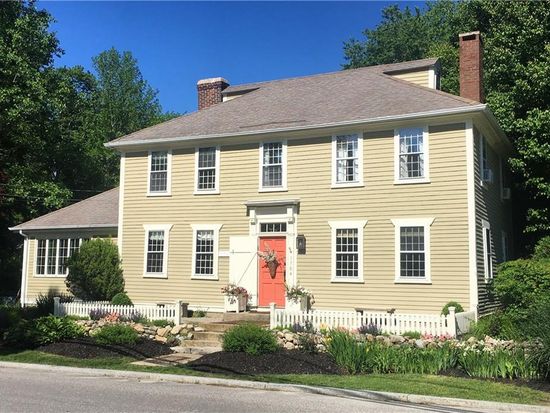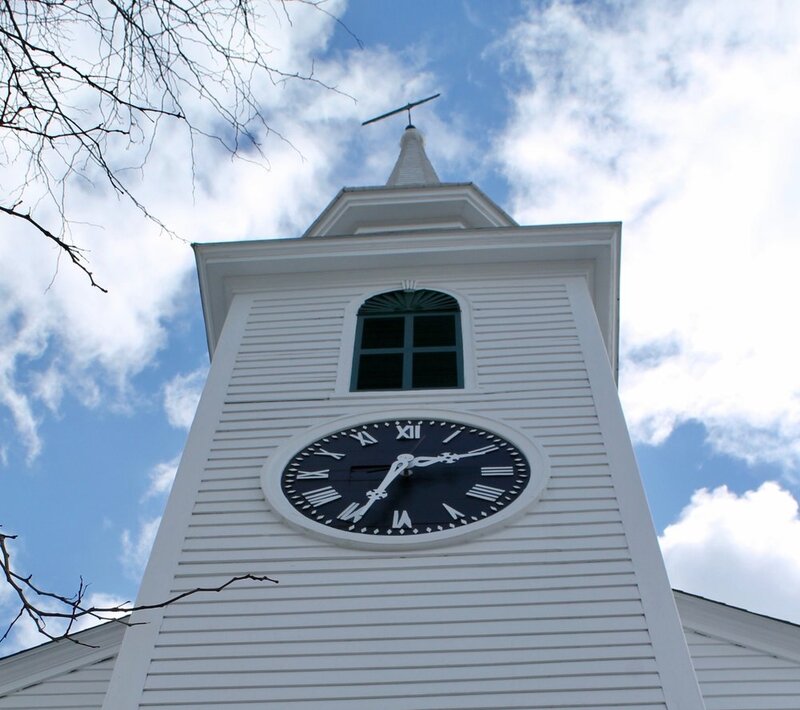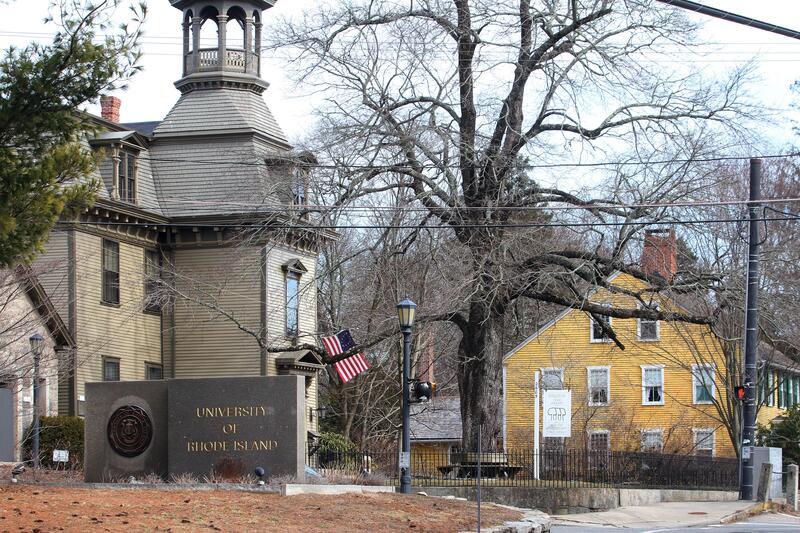Kingston Village, Rhode Island
Kingston, a village within the town of South Kingstown, Rhode Island, was originally named "Little Rest." In 1752, the Village became the county seat, which led to its growth as a center of commerce. For a century, Kingston's court house, now the Kingston Free Library, served as one of Rhode Island's five rotating state capitals.
The Village was formed along a Native American trail (now Kingston's Old North and South Roads), and was incorporated in 1732. It grew rapidly in the early part of the 18th century, which led to its designation as the seat of Kings County in 1752. It became a center of commerce, and new government buildings were constructed, including the Kings County Courthouse (today the Kingston Free Library). The Courthouse opened in 1775 and served as one of Rhode Island's five rotating state capitals until 1854. The name Kingston was adopted in 1826, and the Village became a popular stagecoach stop.
By the early 1880s, however, development and commerce within the town of South Kingstown shifted away from Kingston and to mill-centered villages, including Peace Dale and Wakefield. It was this challenge that inspired residents of Kingston Village to found the Kingston Improvement Association (KIA) in 1884. The founding of the Rhode Island College of Agriculture and Mechanic Arts -- now the University of Rhode Island --- in 1892, which was largely driven by KIA members, helped the Village to once again grow and prosper. The people of Kingston are proud to host our state university, which provides a cosmopolitan flair to our historic home.
In 1974, Kingston Village was placed on the National Register of Historic Places. Visitors to the Village today can enjoy a largely unchanged environment, including more than forty historic structures that largely retain their original appearance.
The Village was formed along a Native American trail (now Kingston's Old North and South Roads), and was incorporated in 1732. It grew rapidly in the early part of the 18th century, which led to its designation as the seat of Kings County in 1752. It became a center of commerce, and new government buildings were constructed, including the Kings County Courthouse (today the Kingston Free Library). The Courthouse opened in 1775 and served as one of Rhode Island's five rotating state capitals until 1854. The name Kingston was adopted in 1826, and the Village became a popular stagecoach stop.
By the early 1880s, however, development and commerce within the town of South Kingstown shifted away from Kingston and to mill-centered villages, including Peace Dale and Wakefield. It was this challenge that inspired residents of Kingston Village to found the Kingston Improvement Association (KIA) in 1884. The founding of the Rhode Island College of Agriculture and Mechanic Arts -- now the University of Rhode Island --- in 1892, which was largely driven by KIA members, helped the Village to once again grow and prosper. The people of Kingston are proud to host our state university, which provides a cosmopolitan flair to our historic home.
In 1974, Kingston Village was placed on the National Register of Historic Places. Visitors to the Village today can enjoy a largely unchanged environment, including more than forty historic structures that largely retain their original appearance.
Kingston village fair
May 18, 2024
www.kingstonvillagefair.org
www.kingstonvillagefair.org


